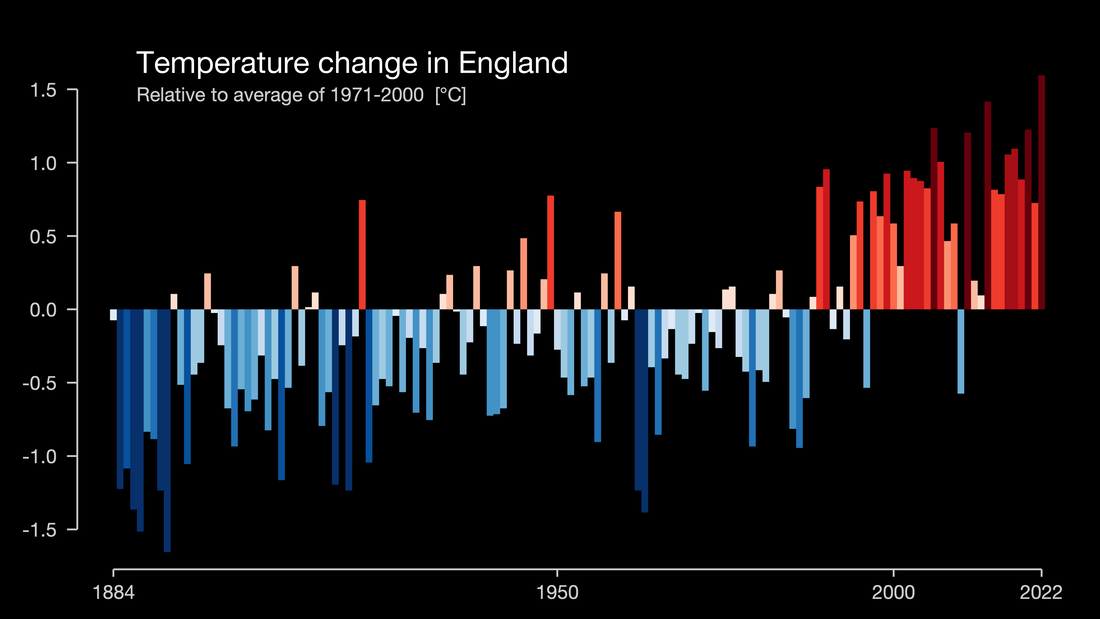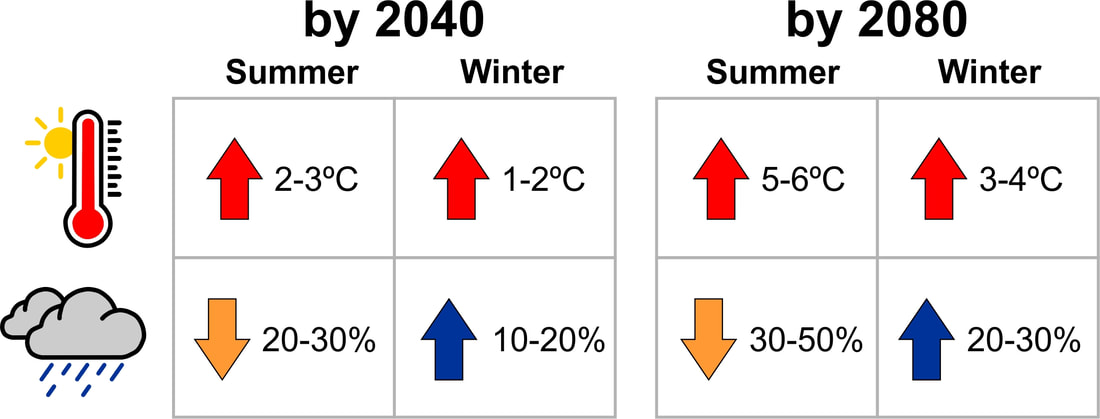What is climate change?
Climate change refers to a large-scale, long-term shift in the Earth's weather patterns and average temperatures. Since the start of the Industrial Revolution in the mid-1800s, humans have contributed to the release of carbon dioxide and other greenhouse gases into the atmosphere, through agriculture, land use change and the burning of coal, oil and gas. This has caused global temperatures to increase, resulting in long-term changes to the climate.
Since the Industrial Revolution, the average temperature of the Earth has risen by almost 1.5°C. This is a rapid change in terms of our global climate system. Levels of carbon dioxide in the atmosphere are now higher than they have been at any time in at least 2 million years. The State of the UK Climate report for 2021 shows that the ten hottest years in the UK since 1884 have all happened since the beginning of the 21st century.
Since the Industrial Revolution, the average temperature of the Earth has risen by almost 1.5°C. This is a rapid change in terms of our global climate system. Levels of carbon dioxide in the atmosphere are now higher than they have been at any time in at least 2 million years. The State of the UK Climate report for 2021 shows that the ten hottest years in the UK since 1884 have all happened since the beginning of the 21st century.
|
Temperature change in England since 1884 (relative to the 1971-2000 average). Cooler years are blue, warmer years are red (Source: #ShowYourStripes).
|
How will climate change affect Chiddingly?
The most recent climate projections by the Met Office Hadley Centre suggest that southeast England is likely to experience warmer, wetter winters and hotter, drier summers in the future as a result of climate change. The projected changes to average temperature and average rainfall are shown below. There will also be a greater likelihood of extreme events such as intense storms and heatwaves. All of this will impact on our homes and our health, and also on the natural environment and agricultural productivity.
|
Projected changes to temperature and rainfall in southeast England by 2040 (left) and 2080 (right) as a result of climate change. Data from: Met Office (2022).
|
If we want to avoid significant increases in the average surface temperature, we need to make big and rapid reductions in global greenhouse gas emissions. This will require switching to renewable energy sources, using the land more sustainably and, potentially, using techniques to remove carbon dioxide from the air. If we continue to burn fossil fuels and cut down forests at the same rate, future warming could fundamentally change life on earth, with potentially drastic consequences.
We can all play our part in reducing carbon emissions. Read about the nine most achievable ways you can lower your carbon footprint elsewhere on this website.
We can all play our part in reducing carbon emissions. Read about the nine most achievable ways you can lower your carbon footprint elsewhere on this website.
To find out more about climate change
If you want to know more, the Met Office website has some excellent resources explaining the science of climate change and how climate change will affect the UK. NASA and National Geographic also have some useful pages aimed at younger people. If you need more detail, then the ultimate resource is the latest Intergovernmental Panel on Climate Change report on Climate Change, published in 2021 – the Summary for Policymakers is a particularly good place to start.


